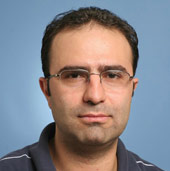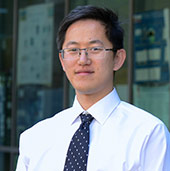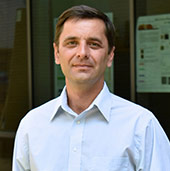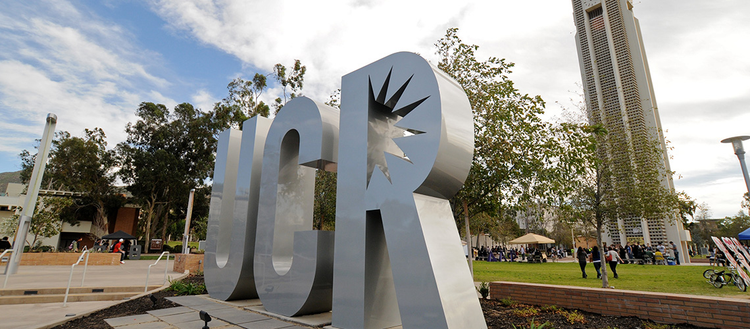Electrical Engineering (Power Systems)
Overview
The Power to Engineer Your Future
Develop the abilities and leadership qualities to be a 21st century engineering leader with a Master of Science in Engineering in Electrical Engineering (Power Systems) from the University of California, Riverside.
The online Master of Science in Engineering with a specialization in Electrical Engineering (Power Systems) is a thorough exploration of the technology, systems and processes that power our world. Coursework explores high-level topics such as smart grid technology, power semiconductor devices, and robotic and industrial automation systems.
Graduate in as few as 13 months
No residency requirement
Enjoy flexible admissions and three start dates
Why a Master’s Degree in Electrical Engineering (Power Systems)?
A Master of Science in Engineering is more than an upgrade to your education — it’s an investment in your future. According to the U.S. Bureau of Labor Statistics (BLS), electrical engineers earn a median salary of almost $90,000, with a high-range salary of more than $135,000. Electrical engineers (power systems) can find employment in a variety of industries, including:
- Electric power and manufacturing of machinery
- Communication systems
- Navigation systems
- Electromedical instruments and semiconductors
Who Should Choose a Master’s in Electrical Engineering (Power Systems)?
Curriculum
The online Master of Science in Engineering is a comprehensive engineering program that encompasses both leadership strategy and technical skills. Coursework includes 16 credits of core engineering classes, plus 16 credits within your specialization, helping you tailor the program to your area of expertise.
To accommodate busy professionals, the online Master of Science in Engineering does not include a required residency. Instead, students participate in 4 one-credit capstone courses throughout the program, providing a rich learning experience that comes with maximum flexibility.
MSEEE Core Courses / 16 credit hours
Engineering in the Global Environment (4)
Technology Innovation and Strategy for Engineers (4)
Introduction to Systems Engineering (4)
Principles of Engineering Management (4)
*Curriculum subject to change
Electrical Engineering (Power Systems) Specialization*/ 16 credit hours
Choose 4 from the following options.
Intro to Engineering Optimization Techniques (4)
Power Systems Analysis (4)
Power Electronics (4)
Electric Drives (4)
Introduction to Smart Grid (4)
Power System Steady State and Market (4)
Admission Requirements
The following criteria are considered during the admission process for the M.S. in Engineering program:
- A bachelor’s degree in engineering or related field from an accredited institution.
- Official transcripts.
- GPA.
- GRE/FE scores.
- TOEFL or IELTS scores (for international applicants).
- Evidence of significant professional engineering experience.
- Professional certifications.
- Reference letters.
- Applicants of the bioengineering specialization are expected to have taken a course in Differential Equations.
Careers
Electrical engineering (power systems) master’s programs can pave the way for a number of different careers. Students who graduate with a degree in electrical engineering (power systems) often find jobs in power plants, utility companies, transmission and distribution system operation companies, and various engineering firms and industrial facilities.
Here’s one career possibility:

Power & Smart Grid Engineer
Career titles include: Power Systems Designer, Substation Integration and Automation Engineer, Transmission and Distribution System Engineer, Supply Applications Architectural Electrical Engineer, Electricity Market and Resource Management Engineer, etc.
Our online master’s program in electrical engineering (power systems) includes courses related to power systems analysis and optimization, power electronics, electric machines, electricity markets, renewable energy integration and smart grid applications.
Student Outcomes
“The knowledge I learned from my classes is very applicable to the work that I do every day. I liked the course content and professors very much. They inspired me to do even more of my own research.”
– Peter Do
Class of 2017
“This program has been one of the best experiences I have ever had. I was so happy when I was accepted into the program because I value the university and its great reputation. The instructors have been exceptional throughout the Master of Science in Engineering – Materials at the Nanoscale program. I felt such great support from everyone throughout the program.
I am so glad I chose this specialization because it connects with the work I do now and I am applying what I have learned.”
– Curt Allen
Class of 2018
“Taking the program online, I was able to do extra research to assist me with grasping the engineering concepts.”
– David Butler
Class of 2016
Faculty

Dr. Tom Fryer
Master’s of Engineering Online

Hamed Mohsenian-Rad, Ph.D.
Electrical and Computer Engineering

Nanpeng (Eric) Yu, Ph.D.
Electrical and Computer Engineering

Roman Chomko, Ph.D.
Electrical and Computer Engineering
Interested in this degree?
The University of California, Riverside has been recognized by a number of academic publications for a variety of different programs and attributes. In its most recent graduate school rankings, U.S. News & World Report counted UC Riverside among the top 30 Best Online Master’s in Engineering programs.
The University of California, Riverside is regionally accredited by the Western Association of Schools and Colleges (WASC). Regional accreditation assures students that UC Riverside meets the highest standards in terms of learning opportunities and a commitment to self-improvement.
U.S. News & World Report consistently ranks the University of California, Riverside among the top 3 in the nation for social mobility, an honor that reflects our longstanding commitment to cultural, professional and geographical diversity.
